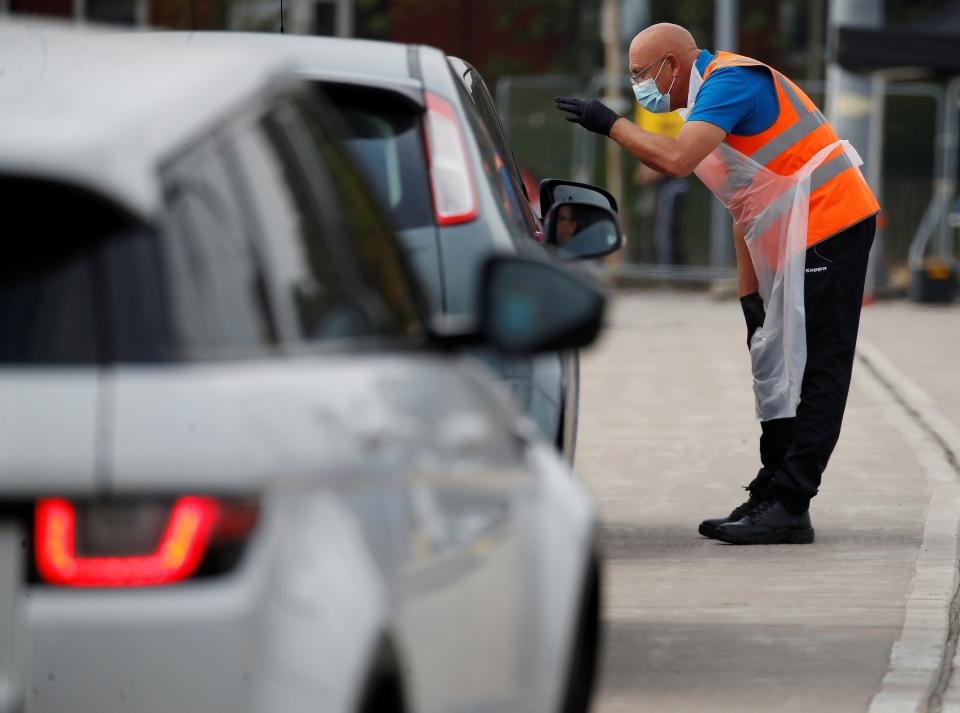Coronavirus: WHO urges UK to move to local contact tracing system

The World Health Organisation has joined the chorus of experts urging the UK government to shift test and trace resources to local teams in order to fight Covid-19
Dr David Nabarro CBE, Special Envoy of WHO Director General on COVID-19, told MPs on Tuesday that there was "no question that local is the only way" to get the virus under control.
The government has faced criticism for the centralised way it has run England's contact tracing system, delegating many responsibilities to private contractor Serco.
Groups like the Independent Scientific Group for Emergencies (Indy Sage) have since the summer urged ministers to shift resources into local public health teams, citing evidence that they are significantly more effective.
At a hearing of the All Party Group on Coronavirus, the WHO's Dr Nabarro said lockdowns should be used to give governments time to sort out the test and trace infrastructure, but that it was test and trace which was crucial to restarting social and economic activity.
"The action is not simply doing lockdown. A lockdown basically freezes the virus where it is, but to get rid of the virus, in our view, you must institute the process of detection, isolation, contact tracing, and isolating," he said.
"That is the absolute mainstay of dealing with this: we look at countries like Senegal, which have been pretty successful. They put that kind of practice into place: widespread across the country, very quickly, and we're saying it's that kind of capacity that needs to be in place.
"To get it right we're not simply saying test, we're saying it's a combination of test, enabling people to isolate, contact tracing, and isolating contacts. It's a total system and it's better always done locally because you get more confidence between societies and responders through local level organisation than doing it from the top.
Dr Nabarro said authorities would get "more cooperation if it's done through the building of trust between local actors and the responders", whereas a centralised approach would need to rely on "coercion".
He added: "This business of going local: there's no substitution for that. I completely appreciate there'll be rows about how much money goes to local to help people at local level do it. That's normal, that negotiation should be there. But there should be no question that local is the only way."
Experts say the UK's current test and trace system is testing too few people and their contacts, too slowly, and that not enough people are following instructions to self-isolate.
The system is also showing little sign of improvement: in the last week of September, the system reached only 68.6 per cent of close contacts – the lowest level so far.
Around 25 per cent of contacts are not reached at all though the national system, while local public health teams are reaching around 100 per cent.
Health Secretary Matt Hancock has claimed that the two systems work well side-by-side and that the local teams can tackle the difficult cases.
Read more
One in five contacts reported to test and trace programme untraceable

